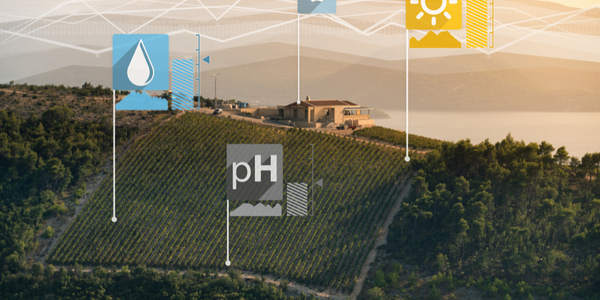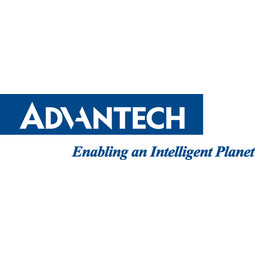Download PDF
SetiBT Long-Distance Fueling Project
Technology Category
- Functional Applications - Fleet Management Systems (FMS)
Applicable Industries
- Agriculture
- Oil & Gas
Applicable Functions
- Logistics & Transportation
- Procurement
Use Cases
- Fleet Management
- Asset Health Management (AHM)
- Supply Chain Visibility
Services
- Software Design & Engineering Services
- System Integration
The Challenge
SetiBT, a specialist IT services provider based in Brazil, was approached by a large fuel and lubricant transportation company for an in-vehicle fuel transportation solution. The company operates a substantial fleet of tankers that supply fuel to remote locations such as sugarcane processing plants, construction sites, and mining operations. The challenge was to manage the fuel loading processes for specialist equipment in the field, inhibit fraud and fuel theft, and increase the accuracy of data acquisition to better control costs. The system also needed to be capable of automatically identifying the equipment being fueled, including tank size and type of fuel required, as well as synchronizing with the vehicle’s horometer, odometer, and GPS. These functions would offer a clear breakdown of each vehicle’s productivity, status, and risk, thereby providing customers with accurate data to increase efficiency and reduce costs.
About The Customer
The customer is a large, well-established bulk fuel and lubricant transportation company based in Brazil. The company operates a substantial fleet of tankers that supply fuel to remote locations such as sugarcane processing plants, construction sites, and mining operations. The company's operations are critical to the sustainability of Brazil’s ethanol biofuel industry, which is considered the world’s first sustainable biofuel economy. The company's operations are also crucial to other industries that operate in remote locations and rely on diesel-powered equipment. Because of their distance from fuel stations, equipment refueling onsite is substantially more efficient and economical for these industries. To facilitate this, the company's fuel trucks carry diesel and lubricants to each site.
The Solution
The solution provided by SetiBT consisted of an Advantech TREK-723 RISC-based mobile data terminal equipped with software designed specifically for managing the fuel flow and delivery process. The system automatically recognizes the equipment and authorizes the transfer of a specific amount of fuel according to pre-established equipment requirements. This not only saves unnecessary wastage, but also reduces pilferage by preventing unauthorized fuel transfers. The flow control meter affixed to each truck records the volume of fuel transferred, enabling the operator to review the exact quantities and types of fuel and lubricant delivered. The fuel flow meter communicates directly with the Advantech TREK-723 in-vehicle terminal, using on-board RFID technology to identify the category of equipment being refueled, and the type and volume of fuel dispensed. Through communication with the back-office server, fuel transfers are successfully restricted to sanctioned equipment only. SetiBT designed the user interface and management software to be integrated with TREK-723 and the end-customer’s own ERP software to ensure accurate enterprise asset management, business intelligence, and data reporting.
Operational Impact
Quantitative Benefit
Related Case Studies.

Case Study
Taking Oil and Gas Exploration to the Next Level
DownUnder GeoSolutions (DUG) wanted to increase computing performance by 5 to 10 times to improve seismic processing. The solution must build on current architecture software investments without sacrificing existing software and scale computing without scaling IT infrastructure costs.

Case Study
Intelligent Farming with ThingWorx Analytics
Z Farms was facing three challenges: costly irrigation systems with water as a limited resource, narrow optimal ranges of soil moisture for growth with difficult maintenance and farm operators could not simply turn on irrigation systems like a faucet.

Case Study
Remote Wellhead Monitoring
Each wellhead was equipped with various sensors and meters that needed to be monitored and controlled from a central HMI, often miles away from the assets in the field. Redundant solar and wind generators were installed at each wellhead to support the electrical needs of the pumpstations, temperature meters, cameras, and cellular modules. In addition to asset management and remote control capabilities, data logging for remote surveillance and alarm notifications was a key demand from the customer. Terra Ferma’s solution needed to be power efficient, reliable, and capable of supporting high-bandwidth data-feeds. They needed a multi-link cellular connection to a central server that sustained reliable and redundant monitoring and control of flow meters, temperature sensors, power supply, and event-logging; including video and image files. This open-standard network needed to interface with the existing SCADA and proprietary network management software.

Case Study
Refinery Saves Over $700,000 with Smart Wireless
One of the largest petroleum refineries in the world is equipped to refine various types of crude oil and manufacture various grades of fuel from motor gasoline to Aviation Turbine Fuel. Due to wear and tear, eight hydrogen valves in each refinery were leaking, and each cost $1800 per ton of hydrogen vented. The plant also had leakage on nearly 30 flare control hydrocarbon valves. The refinery wanted a continuous, online monitoring system that could catch leaks early, minimize hydrogen and hydrocarbon production losses, and improve safety for maintenance.







